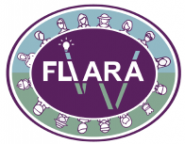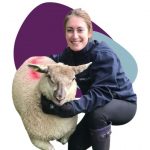On the slopes of Santa Caterina dello Ionio in Italy, where the Ionian breeze carries stories of ancient rural life, Sofia De Matteis is rewriting the script of innovation—not with machines or silicon chips, but with donkeys, wild artichokes, and a feminist compass.
Originally from Sicily, Sofia’s journey took her from the narrow alleys of her hometown to the academic halls of Bologna, where she studied geography and territorial processes. It was there that her political consciousness sharpened. As she immersed herself in environmental and social justice movements, she began to sense a deep calling—one that would eventually lead her back to the South, this time to Calabria.
“I arrived in Santa Caterina in 2017 and felt immediately that this was a place full of energy,” Sofia recalls. “It’s vast—over 40 square kilometres—but sparsely populated. It’s a land that resists silence, full of memory, and full of life.”
In 2020, in the middle of the COVID-19 pandemic, she and her partner, Raffaele Dolce—himself a native of Santa Caterina—planted the first seeds of Avamposto Agricolo Autonomo, their ethological farming project. The name, which translates to “Autonomous Agricultural Outpost,” is as defiant as it is visionary. They bought a plot of land that had been abandoned for over fifty years and began to restore it—not just physically, but symbolically.
“We didn’t want to impose anything,” Sofia explains. “We came here to listen, to learn from the territory and from its people.”
And so, with two donkeys—Rosa and Cecilia—they reintroduced a familiar sound long gone from the village: the bray. It was met with emotion. Elders came forward with memories, stories, and tears. “The return of the donkeys wasn’t just symbolic—it was a reconnection to something visceral and ancestral,” she says.
But Sofia’s work doesn’t stop at nostalgia. Avamposto is a living ecosystem, cultivating traditional crops like wild artichokes and welcoming animals to roam freely. With a strong anti-speciesist and feminist ethos, Sofia envisions agriculture not as an industry, but as pedagogy.
“The land is an excellent educational setting,” she asserts. “Outdoor education is about reconnection—reconnecting children with nature, with animals, and with the organic and inorganic matter that shapes our world.”
The farm is now a hub for learning and healing. Children from the local community, migrants, and those often pushed to the margins find in Avamposto a space of dignity. From trekking with donkeys through ancient rural paths to exploring forgotten trails and ruins, Sofia’s project brings geography to life—not as a textbook subject, but as a lived, breathing experience.
“I always say that geography is both within and outside of us,” she reflects. “Rediscovering our shared cultural and physical geography is a political act.”
Political, too, is her fight for rural rights. One of her first shocks upon moving to Santa Caterina was the lack of public transportation. “After 5 p.m., you can’t even get from the Marina to the historical centre,” she says. “If you don’t have a driver’s license, and many women or migrant mothers don’t, you’re stuck. And how can we talk about empowerment without access?”
That question sits at the heart of Sofia’s broader mission: to challenge a development model that equates worth with numbers. “When I hear people say, ‘There’s no one left in these villages,’ I get angry. We are here. We live here. We work here. We matter.”
Thanks to national funding, Sofia is now in the final stages of opening a kindergarten rooted in environmental harmony and interspecies respect—yet another branch of her growing tree of transformation. “The yurt we’ve just built will be a laboratory for rural practices,” she says with pride. “A place where children, refugees, and neighbours meet and build something together.”
Her vision aligns powerfully with the FLIARA project, which she sees as a much-needed platform for exchanging ideas and making rural women visible. “FLIARA gave us space to connect, to share, and to listen,” Sofia says. “That in itself is revolutionary.”
For Sofia, innovation isn’t a buzzword. It’s an act of care. It’s reclaiming the South not as a place of abandonment, but as a frontier of alternative futures. It’s about refusing to separate business from social justice. “Women’s businesses,” she insists, “are often just excuses to talk about something bigger—about rights, about welfare, about solidarity.”
Asked what advice she would give to other women hoping to innovate in rural contexts, her answer is simple but profound: “Listen. Don’t dominate. Let yourself be changed by the people and the land. Only then can you truly innovate.”
In a world obsessed with scale and speed, Sofia De Matteis reminds us that slowness, rootedness, and listening are radical. And that perhaps the future of innovation walks on four legs and answers to the name of Rosa or Cecilia.



